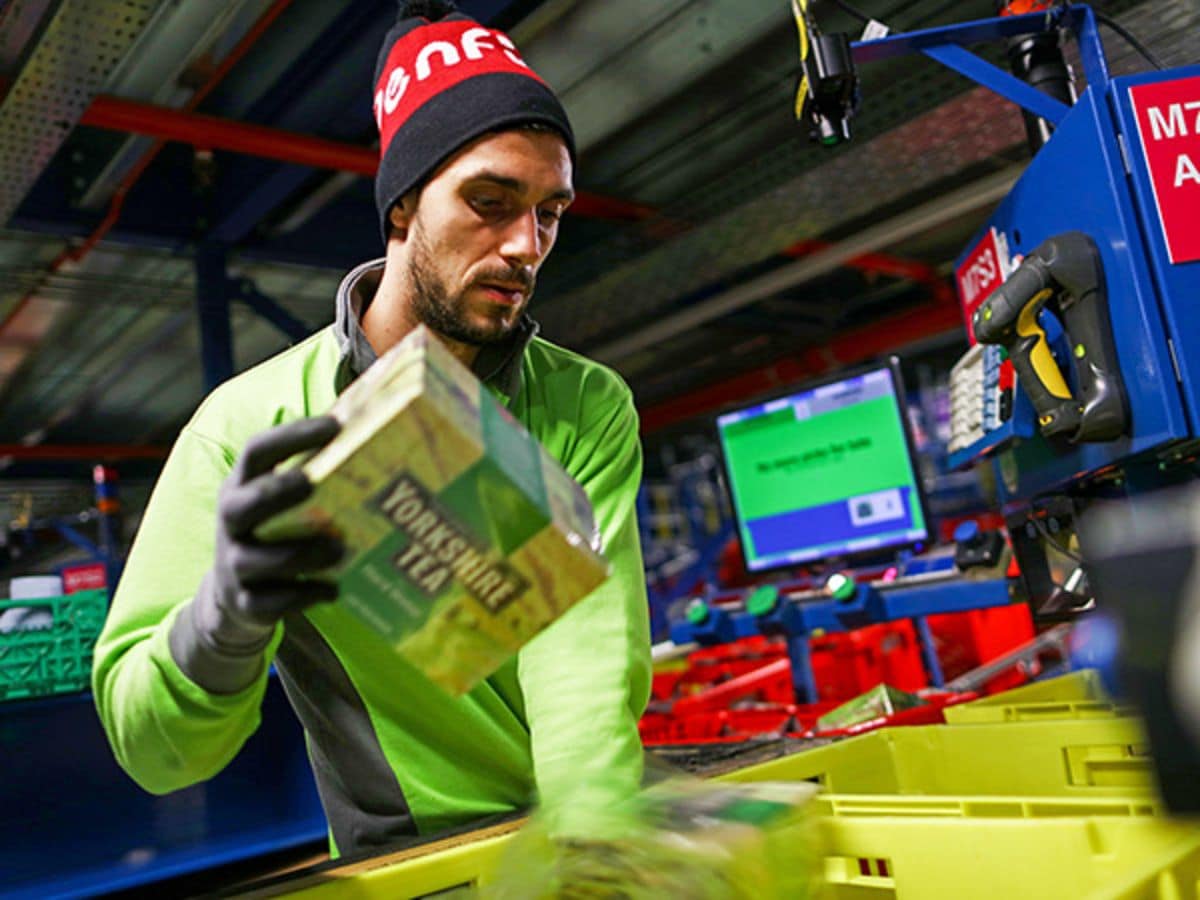Ocado’s [OCDO] share price closed almost 6% higher on Tuesday after the online grocery retailer’s H1 earnings release, as strong growth in partnership revenues and a reiteration of guidance overshadowed widening losses and a £110m write-down.
Adjusted revenues for the period rose by 10.5% to £874m, while active customers grew by 9.7% to 679,000. But the firm had a write-down of more than £100m after a fire badly damaged its distribution centre in Andover, Hampshire in February; this was partially offset by an £11m insurance payout. Together with higher costs from its share-based compensation programme, the hit resulted in a pre-tax loss of £142.8m for the six months to June – significantly wider than the £13.2m loss a year ago – denting Ocado’s cash reserves.
Investors seemed to focus on growth in Ocado’s solutions segment, which sells inventory and distribution technologies to grocery chains around the world. Fees invoiced from partners (not all of which were recognised as revenue) rose by 36% to £122m in the period.
Taking a shine to solutions partnerships
Marks & Spencer [MKS] is one of the most recent additions to Ocado’s roster of partners, which also includes Kroger [KR] in the US, Coles [COL] in Australia and Casino in France [CO]. A joint venture between Marks & Spencer and Ocado is due to start in autumn 2020, and Ocado is in line for a £562m upfront cash windfall when the deal officially closes in August.
The deal is set to burnish Ocado’s image as a solutions provider, not only an online grocery retailer. Noting the company’s investments in vertical farming and robotic food preparation start-ups, Peel Hunt’s James Lockyer said: “Ocado … is a technology group and should be treated as such.”
“Ocado … is a technology group and should be treated as such” - Peel Hunt’s James Lockyer
He added that investors have had trouble assessing the windfall from partnership deals, as accounting rules prevent Ocado from booking revenues before the deals take effect – hence the results focus on the fees invoiced over the reported income for the solutions segment. Russ Mould, investment director at AJ Bell, emphasised the need for Ocado to implement partnerships like the M&S joint venture smoothly, so that it can “turn the magical promise into profit”.
Justifying shares’ premium
Earnings will also be needed to justify the shares’ premium valuation. After Tuesday’s strong trading, Ocado’s trailing 12-month price-to-earnings ratio (TTM PE) is 163, according to Refinitiv. That compares to 121 for Asos [ASOS] and 83 for Boohoo [BOOH], two other UK online delivery growth stocks. Ocado’s valuation is especially lofty when compared to other big UK grocers, which are all making pushes into home delivery: TTM PE ratios stand at 17 for Tesco [TSCO], 22 for Sainsbury’s [SBRY] and 20 for Morrisons [MRW].
Nevertheless, even with Ocado’s stock still very much in a growth phase, there are already some winners and losers. A 61% year-to-date climb in the share price has rewarded stock-pickers at Bailie Gifford’s Worldwide Discovery fund, where Ocado accounts for the biggest holding.
| Market cap | £8.12bn |
| EPS (TTM) | -24.70 |
| Operating margin | -9.53% |
| Quarterly Revenue Growth (YoY) | 10.90% |
Ocado share price vitals, Yahoo Finance, 17 July 2019
The percentage of Ocado shares outstanding on loan rose from around 3.9% at the start of June to 4.8% as of Monday, according to data compiled by IHS Markit. On 27 June, over 5% of shares were outstanding – the highest in three years. Tuesday’s gains, however, are likely to have burned short sellers – first and foremost hedge funds GMT Capital and Coatue Management, which hold a combined 1.20% of the shares on loan.
Continue reading for FREE
- Includes free newsletter updates, unsubscribe anytime. Privacy policy





